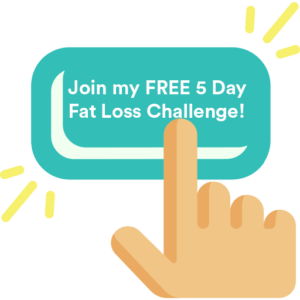Top 3 Intermittent Fasting Myths
I have been intermittent fasting for over 8 years now and although research, studies and its general popularity have increased dramatically in that time, there still seems to be some hugely inaccurate rumours and myths doing the rounds. These myths provide people with all the wrong information and can often be the reason that people do not try intermittent fasting for themselves.
READ: The Health Benefits of Intermittent Fasting
Myth #1: Fasting = Starvation
Fasting has NOTHING to do with starvation. It’s about giving your body what it needs when it needs it. Starvation is not a good thing! It occurs when you run out of stored body fat (sub 4%) to use as energy and you start to cannibalise muscle and vital organs in order to survive.
The human body has evolved to survive episodic periods without food. Fat is stored energy and muscle is functional tissue. Fat is burned first. The last thing your body wants to do is start breaking down muscle – it needs it to catch its next meal!
Glucose from food and glycogen in the muscle and liver is used for short-term energy and fat for long-term storage. Fat is not burned when plenty of glucose is available. When we go through periods of fasting, the glucose and glycogen levels drop, does this mean starvation? No! We tap into our stored energy reserves – body fat.
I often hear people say, “I am thin I don’t have body fat very much to tap into”. Let me put this into perspective, the last time I had my body composition done I had a body fat percentage of 8%. This equated to roughly 8kg of fat all over my body. 0.45kg of fat contains 3,500 calories, so I have roughly 60,000 calories to tap into, and I have a very low body fat!
Myth #2: Fasting Slows Down Your Metabolism
Remember, the aim of The 2 Meal Day and Intermittent Fasting isn’t to calorie restrict, it’s just to restrict the time in which you eat your calories. Waiting a few extra hours to eat your first meal won’t make a difference to your metabolic rate, unless you start undereating – which is exactly the opposite of what you should be doing when fasting.
In fact, short-term fasting (16-72 hours) can actually increase resting metabolic rate due to norepinephrine being released (1) (2)
I think this myth originates from the “Minnesota Starvation Experiment” in essence they took a bunch of middle aged, healthy men and over the course of 6 months studied how they responded to a diet that was 50% of their daily intake needs. Basically, if the men required 2,000 calories a day to survive, they put them on 1,000 calories a day. What did they find? Their metabolism decreased by 40%. THIS IS NOT FASTING, this is CALORIE RESTRICTION.
I will leave the difference between fasting and calorie restriction for another article, but one point you can take away with you for now is that they create completely different hormonal changes in the body.
Myth #3: Your Muscles Will Waste Way
I have touched on this in the first myth, but it makes no sense for your body to use muscle for energy when it has an abundance of fat to tap into. Fasting has been shown to be incredibly effective at preserving muscle mass but decreasing body fat. When combined with resistance training it can actually increase muscle mass.
Protein is functional tissue and has many purposes other than energy storage, whereas fat is specialized for energy storage. How does the body retain lean tissue? Because of Human Growth Hormone (HGH). Fasting increases levels of HGH (3) which is known for its muscle retraining and building effects.
So, let me put it as simply as I can. Fat is, stored food for us to ‘eat’ when there is nothing to eat. We have evolved fat stores to be used in times when there is nothing to eat. It’s not there for any other purpose. When there is nothing to eat (fasting), we ‘eat’ our own fat. This is natural. This is normal. This is the way we were designed.
And it’s not just us, but all wild animals are designed the same way. A lioness doesn’t waste away its muscle while keeping all its fat stores… she’s got to be strong enough to hunt for her next meal!
During fasting, hormonal changes kick in to give us more energy (increased norepinephrine), keep glucose and energy stores high (burning fatty acids and ketone bodies), and retain our lean muscles and bones (growth hormone). This is normal and natural and there is nothing to be feared!
On a purely anecdotal note; I have put on 4kg of lean muscle mass in the last 6 months due to my Olympic Lifting training. I am lifting heavy weights 4/5 times per week, I fast at least 16 hours per 6 days per week and one day per week I do a 24 hour fast. My hunger levels have increased since I started lifting (which is to be expected) so I am eating more in my eating window, but ultimately, I am achieving all of this whilst intermittent fasting and showing no negative side effects!

READ: The Truth About Fasted Exercise
To finish…
It’s important to note that Intermittent Fasting is not a magic pill for weight loss.
In my opinion and experience coaching 1000s, it can help to reduce hunger, improve energy levels and allows you to reduce overall calorie consumption, effortlessly.
It’s one effective tool in your toolbox.
In order to get sustainable fitness and fat loss results and improve your relationship with food, you must utilise every tool available.
